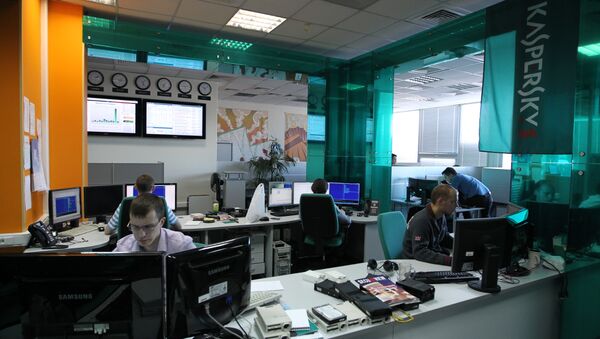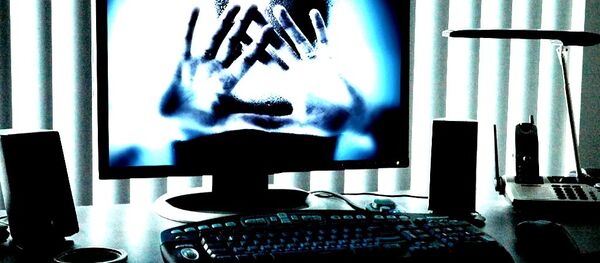Ukrainian President Petro Poroshenko has recently extended existing sanctions against Russia and imposed new bans on the country's companies and officials.
Poroshenko noted that the move was made in response to the breakaway Donetsk and Lugansk republics' decision to set a date for local elections.
Продовження та розширення санкцій має стати відповіддю так званим ДНР і ЛНР про проведення виборів на Донбасі. pic.twitter.com/qxQpp2Qg6s
— Петро Порошенко (@poroshenko) 16 сентября 2015
Kaspersky Lab, one of the world's fastest-growing cybersecurity companies and the largest one that is privately-owned, has been caught in the crossfire together with dozens of Russian companies.
The developer is now banned from being used by state bodies of Ukraine, but it will still continue to provide protection to commercial organizations and individual users.
Needless to say, the Ukrainian authorities did not bother to present any arguments to justify their decision. Instead Ukraine's numerous bloggers and so-called "experts" have rushed to give their own explanations for why Kaspersky Lab was banned by Kiev.
The myth of "close ties" between Kaspersky Lab and the Russian Federal Security Service (FSB) has emerged in the Ukrainian media. Some Ukrainian bloggers have even gone so far as to claim that by banning Kaspersky Lab Kiev is boosting the country's cyber security.
Congrats to @kaspersky EU PR team for winning the most prestigious PR award in Germany! @rojcheck on the stage: pic.twitter.com/Gior0QqT4L
— Eugene Kaspersky (@e_kaspersky) 18 сентября 2015
"Like other major manufacturers of security solutions, we actively cooperate with the international community of information security experts and the law enforcement agencies of different countries in the fight against cybercrime. The FSB [Federal Security Service] is just one such organization, along with Europol, INTERPOL, and other agencies. For example, Kaspersky Lab has repeatedly participated in joint international investigations, working closely with CERT (Computer Emergency Response Teams) specialists worldwide," Anton Shingarev, Global GR Director, Kaspersky Lab, told Sputnik.
Indeed, Kaspersky Lab provides protection for over 400 million users and 270 thousand companies worldwide including large enterprises, small and medium businesses.
Shingarev explained that Kaspersky Lab's solutions obtain depersonalized cyber threat-related data from the devices of those users who have agreed to participate in the Kaspersky Security Network (an automatic cloud-enabled system that processes depersonalized cyber security-related data streams from millions of voluntary participants around the world).
Dutch police & Kaspersky Lab investigation leads to arrest of suspects behind #CoinVault #ransomware https://t.co/TxZ9rLLo2H
— Eugene Kaspersky (@e_kaspersky) 17 сентября 2015
"This data helps to identify new and as yet unknown threats quicker and more precisely. Similar technologies are used by other leading vendors of security solutions," Shingarev emphasized.
"Millions of people around the globe trust Kaspersky Lab to protect their digital valuables, including private data. Kaspersky Lab takes this responsibility seriously, which is why our products and technologies do not process private data," Kaspersky Lab's Global GR Director told Sputnik.
In March 2015 Bloomberg reported that Kaspersky Lab cooperated with Russian security services and alleged that the company's founder Eugene Kaspersky exchanged valuable information with the FSB in banya (traditional Russian sauna).
"The fever of looking for Kremlin-linked conspiracies has reached journalists from Bloomberg. And curiously this happened not long after our investigation on the Equation Group," Eugene Kaspersky wrote on his personal blog on March 20, 2015.
In 2012 Wired Magazine claimed that Eugene Kaspersky worked for the KGB (the USSR state security service). The ridiculous allegation was branded by the company's founder as "Cold War stereotypes," and "pseudo-facts."
"Eugene has never worked for the KGB. He went to a special Higher School that was co-sponsored by four state institutions — one of which was the KGB," Shingarev elaborated.
Since 2006, Kaspersky Lab has been successfully operating in the Ukrainian market. The company has been a diligent taxpayer and trusted advisor for its customers in Ukraine, including government organizations and businesses.
Kaspersky Lab's software products are certified in Ukraine and comply with all standards established by the country's legislation. These certificates mean that the company's antivirus solutions can be used to ensure cyber security of government agencies and bodies. The latest certificate was received by Kaspersky Lab in February 2015.
The question arises, which companies might the Ukrainian government be trying to clear a path for by banning Kaspersky Lab antivirus developer?




